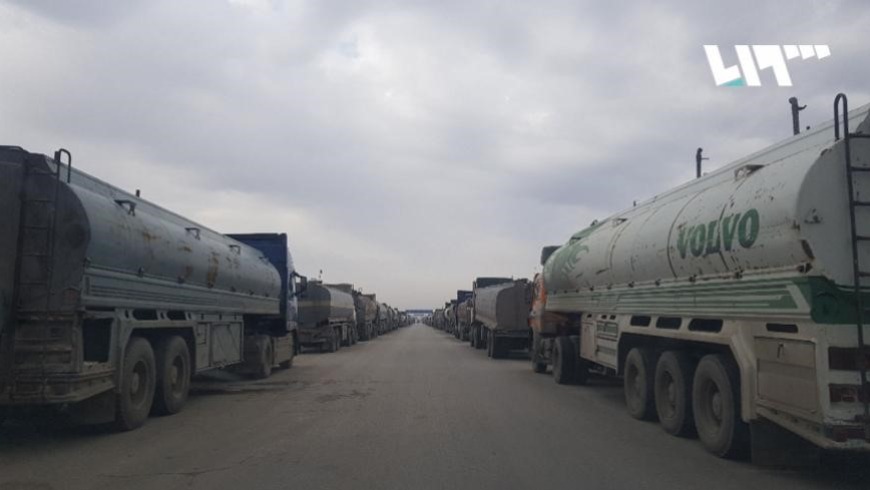Several empty tankers originating from the Hama governorate have recently reached the regions under the control of the Syrian Democratic Forces (SDF) in northeastern Syria. Their purpose is to facilitate the supply of oil to these areas and subsequently transport it to regions under Syrian regime control, which are currently grappling with a significant fuel shortage.
As reported by the local network Naher Media, numerous oil transport vehicles arrived in the city of Tabqa, located to the west of Raqqa, this afternoon. These tankers have journeyed from areas controlled by the Syrian regime in Hama.
These tankers are ultimately destined for oil wells in the governorates of Hassakeh and Deir-ez-Zor. Their primary objective is to transport fuel from the areas controlled by the SDF to those under Syrian regime authority.
It is worth noting that the recent movement of tankers from regime-controlled areas to SDF-controlled regions marks the largest such operation in the past three months.
Oil in SDF Areas
The Syrian Democratic Forces (SDF), in collaboration with international coalition forces, currently maintain control over the majority of the oil fields in the Deir-ez-Zor and Hasakeh governorates in northeastern Syria. Meanwhile, Russia, acting through the Syrian regime, oversees most of the gas fields located in the central part of the country.
The Autonomous Administration facilitates the export of crude oil through several channels. One involves the al-Qaterji Company and utilizes tankers to supply crude oil to the Syrian regime. Additionally, crude oil is transported to the Kurdistan region of Iraq and areas controlled by the Syrian opposition. Traders handle this transportation, using tankers to move oil across the Manbij crossing to regions such as Jarablus and al-Bab in the northeast of Aleppo.
The Autonomous Administration has established local oil refining capabilities, processing the crude oil it controls. The refined products, which include gasoline, diesel, and kerosene, are made available to the public through a network of private and affiliated gas stations situated within the areas under its authority.
U.S. sanctions on the oil sector
Since 2014, the U.S. Treasury Department has indeed imposed sanctions on oil facilities associated with the Syrian regime. American citizens and companies have been prohibited from engaging in any transactions with the Baniyas refinery and Homs refinery companies. Additionally, in 2018, sanctions were imposed on Qaterji for its involvement in facilitating the transportation of oil shipments between the regime and ISIS.
In recent months, the areas under Syrian regime control have been grappling with an unprecedented fuel crisis. This crisis has resulted in a state of complete paralysis affecting all sectors, including transportation and communication. The situation is particularly dire in the capital, Damascus, and its surrounding areas. The delay in the distribution of subsidized gasoline has extended to nearly 50 days, and power outages have become severe, with up to 23 hours of cuts per day in many regions.
This article was translated and edited by The Syrian Observer. The Syrian Observer has not verified the content of this story. Responsibility for the information and views set out in this article lies entirely with the author.


